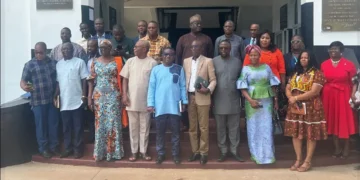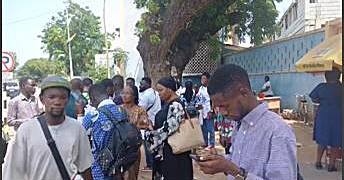
The Parliamentary Select Committee on Education recently visited several senior high schools in the Greater Accra Region to evaluate the effects of the double track system and explore solutions to improve educational operations and sustainability.
The schools visited include Chemu Senior High School, Accra Girls Senior High School, Achimota Senior High School, Accra Senior High School, and Accra Academy. At each location, the Committee engaged with administrators, teachers, and students to better understand their achievements and challenges.
At Chemu Senior High School, the Headmistress highlighted the school’s notable success in the National Science and Maths Quiz. However, she raised concern about an incomplete six-unit classroom block and a lack of boarding facilities, urging the Committee to assist with funding for infrastructure improvements.
Accra Girls Senior High School’s Assistant Headmistress proudly shared the school’s impressive 95.4% pass rate in the 2024 WASSCE. She also pointed out infrastructure challenges, such as the need for a larger assembly hall and a modern library. Additionally, she emphasized the drawbacks of the double track system, including reduced student breaks and the social risks of prolonged periods at home.
At Achimota Senior High School, Headmaster Ebenezer Graham Acquaah discussed the school’s achievements in the National Science and Maths Quiz and highlighted their transition to a regular academic calendar. He also underscored the challenges faced by teachers under the double track system and called for improved security measures to ensure student safety.
The Headmaster of Accra Academy, Emmanuel Ofoe Fiemawhle, noted the school’s steady academic progress, with student performance rising to 80% in recent years. Nevertheless, he expressed concern about classroom shortages and requested the construction of an 18-unit classroom block to accommodate the growing student population.
The Committee, led by its Chairman Peter Kwasi Nortsu-Kotoe, praised the schools for their hard work and assured stakeholders that efforts would be made to address the issues raised.
This visit is expected to guide future policy decisions and interventions to strengthen the region’s educational framework.























